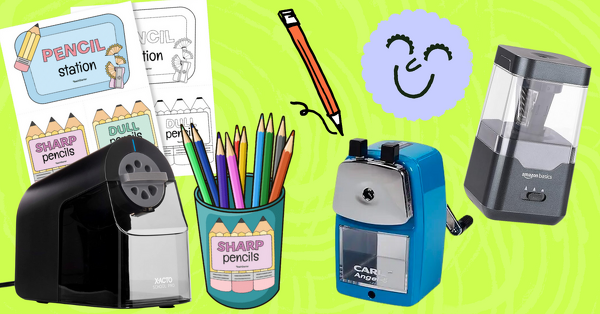To say report cards have changed a lot over the years is putting it mildly. It’s not just the fact that more and more report cards are delivered to parents digitally either. The A, B, C, D, F grading is gone in many schools, and the comments section in most districts looks a lot different than the parents of your class may be expecting.
So how do you prepare parents to sit down to talk about report cards with their kids? Your district may have a guide ready to explain the grading rubric, but we know that’s only part of the equation. Parents are often wondering how to have a conversation about learning that will really help their kids!
The Teach Starter teacher team has a few recommendations to share with your parents to make report card time easier … on everyone!
How to Talk to Kids About Report Cards
1. Find Time to Talk One-on-One
Kids will often dump a report card on their parents when they’re busy — making dinner, helping a sibling, or doing any of the dozens of things on their plate every evening. It’s best if parents hold off on opening — and discussing — that report card until they can do it one-on-one.
Advise parents to find a quiet time and place to sit down with their child to talk about their report card. The child should have a parent’s undivided attention, without interruptions, and there should be time to have a relaxed discussion, rather than rushing the conversation. This signals that their parents are invested in their education.
Of course, this can be challenging when parents have more than one child to speak with. That said, it is even more important if kids tend to try and compare their own reports with their siblings!
2. Focus on Effort Over Grades
The amount of effort a child puts into their schoolwork is the aspect of learning that they have the most direct control over, and it’s important to acknowledge that — regardless of the actual grades.
AS teachers, we know that focusing on effort over achievement isn’t going to reduce a child’s motivation to work hard! But parents aren’t always up on education research.
You may want to share some information about the benefits of building a growth mindset in kids and that praising the process — rather than the outcome — motivates children to keep working.
Tell parents that this approach applies to both children who excel and those who struggle in the classroom. Kids who are overpraised for achievement may actually stop working as hard or feel frustrated when encountering hardship, while students to whom academics don’t come naturally can feel like learning is a chore if the feedback is focused on poor grades.
Parents might look at the report card and ask “How do you think you did?” or “What went right this marking period?” This opens the child up to talk about their successes and to feel supported. Combined with comments from their teachers, talking about effort also helps you to understand your child’s attitude towards learning. Some kids will just say “I dunno” or “good,” let parents know it’s OK to push further. The goal is to have a real back-and-forth conversation!
3. Address Comparison
Kids often compare their grades to classmates or siblings. It’s natural behavior, but remind parents to explain to their kids that everyone is different, and everyone has their own strengths and weaknesses.
In particular, advise parents to avoid comparisons between one child’s report card and their siblings’ or classmates’ reports. Instead, start with the positive and keep the conversation focused on their child.
There is one caveat here: If a child has improved from a past report, it’s important for parents to mention it. This is one type of report card comparison that is helpful! Parents should praise improvements made and their areas of growth.
4. Consider Setting an Individual Learning Goal
There’s certainly value in taking time to sit with a child, reflecting on their current report card, and then setting an individual learning goal for the next marking period. Advise parents to choose their words thoughtfully so their child feels supported and use language that implies a team effort.
Instead of “you have to raise your grades,” for example, parents might say “let’s work on that grade.”
If a child’s report card identifies an area of challenge, whether academic or social, improving in this area could become a learning goal. If a child absolutely adores a certain subject area, perhaps they would like to focus on improving their effort or achievement in that area.
Gently remind parents that they should be sure goals are realistic — a third-grader who’s set on reading at a ninth grade level by the end of the marking period is likely to be more frustrated than motivated!
5. Make a Plan
If parents feel like a learning goal is in order, encourage them to discuss actionable steps to address any concerns and/or progress towards their learning goal. That may mean setting up a parent/teacher conference with you for suggestions on how to meet challenges, setting aside more time for homework at night, or a host of other steps. Tell parents they should make sure they set up an actionable goal with their children and play an active role in the process!
Even if they didn’t feel like their child had a need to create goals, parents should ask their kids what they think should come next. They may find out that their child wishes they would spend more time doing bedtime reading, or maybe they wish their parents would check their homework at night.
6. Talk About What They Love About School
Remind parents to end the conversation on a positive note. After all, kids should walk out of a report card talking with good feelings about school, even if their grades weren’t quite what their parents hoped. Encourage parents to ask questions about what their children love about school, how they feel in their classroom, and if there is anything else they can do as a family to help.
Planning for report card time? Check out our free list of helpful words for writing report card comments!
Banner image via shutterstock/4 pm production







Comments